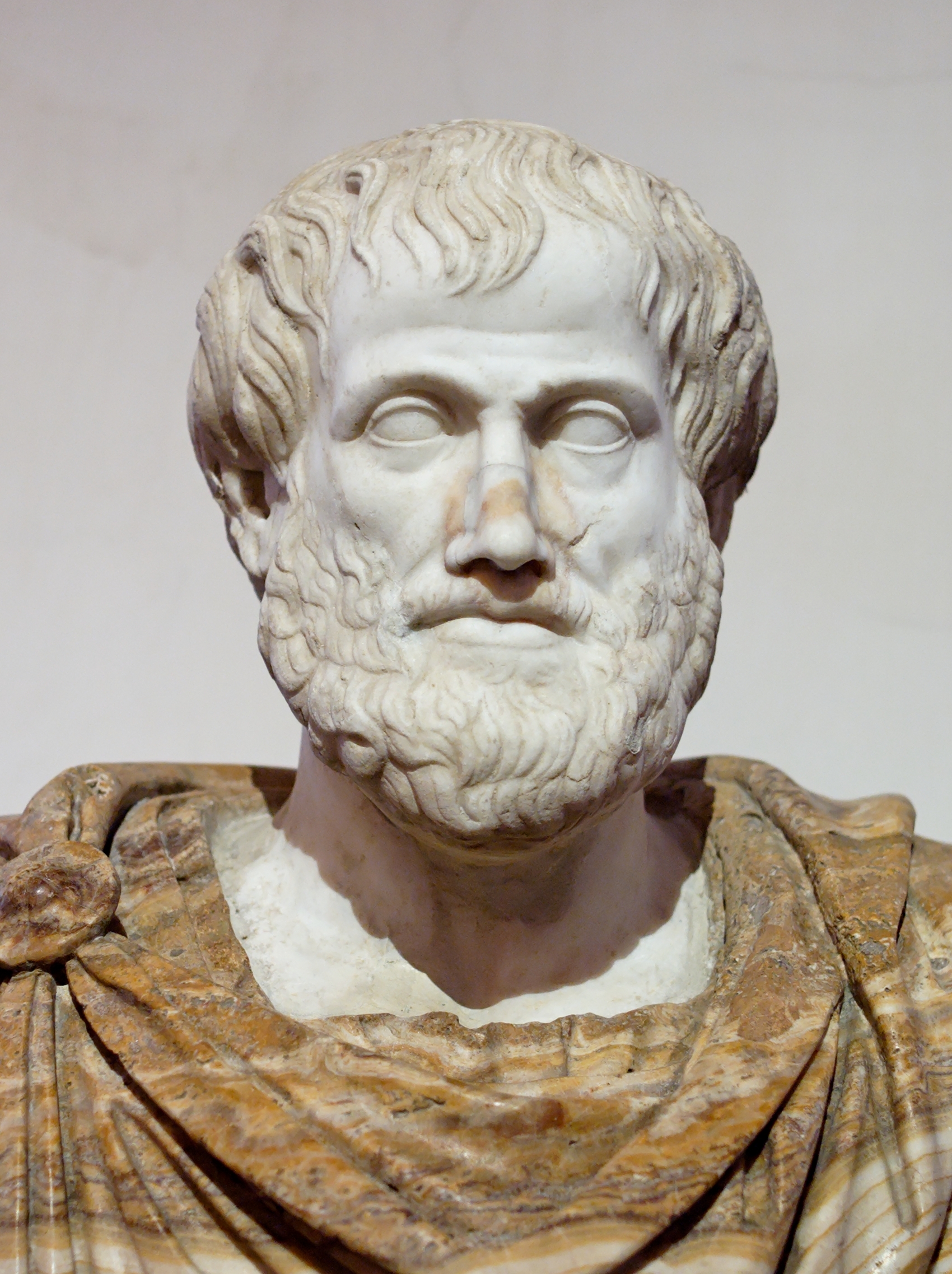Aristotle Quotes
Source: Emotional Intelligence: Why It Can Matter More Than IQ
Source: ARISTOTLE, The Nicomachean Ethics
“Homer has taught all other poets the art of telling lies skillfully.”
1460a.19
Poetics
Variant: It is Homer who has chiefly taught other poets the art of telling lies skillfully.
Attributed to Aristotle in Bernhoff A. Dahl, Optimize Your Life! http://books.google.gr/books?id=B1Z2XP_DamQC&dq=, Trionics International Inc., 2005, p. 111.
Disputed
“There is only one way to avoid criticism: do nothing, say nothing and be nothing.”
Misattributed
Source: Elbert Hubbard, Little Journeys to the Homes of American Statesmen (1898), p. 370 http://hdl.handle.net/2027/osu.32435065322687?urlappend=%3Bseq=458: "If you would escape moral and physical assassination, do nothing, say nothing, be nothing—court obscurity, for only in oblivion does safety lie." Other versions of the saying were repeated in several of Hubbard's later writings.
“Plato is dear to me, but dearer still is truth.”
Amicus Plato, sed magis amica veritas.
A similar statement was attributed to Aristotle in antiquityː ""Φίλος μὲν Σωκράτης, ἀλλὰ φιλτέρα ἀλήθεια."" [""Socrates is a friend, but truth is a greater.""] — Ammonius Hermiae, Life of Aristotle (as translated in Dictionary of Quotations http://archive.org/details/dictionaryquota02harbgoog (1906) by Thomas Benfield Harbottle, p. 527). The variant mentioned above may possibly be derived from a reduction of a statement known to have been made by Isaac Newton, who at the head of notes he titled Quaestiones Quaedam Philosophicae (Certain Philosophical Questions) wrote in Latin: ""Amicus Plato— amicus Aristoteles— magis amica veritas"" which translates to: ""Plato is my friend— Aristotle is my friend— but my greatest friend is truth."" (c. 1664)
Another possible origin of the ""dear is Plato"" statement is in the Nicomachean Ethics; the Ross translation (of 1096a.11–1096a.16) provides: ""We had perhaps better consider the universal good and discuss thoroughly what is meant by it, although such an inquiry is made an uphill one by the fact that the Forms have been introduced by friends of our own. Yet it would perhaps be thought to be better, indeed to be our duty, for the sake of maintaining the truth even to destroy what touches us closely, especially as we are philosophers; for, while both are dear, piety requires us to honour truth above our friends.""
Note that the last clause, when quoted by itself loses the connection to ""the friends"" who introduced ""the Forms"", Plato above all. Therefore the misattribution could be the result of the ""quote"" actually being a paraphrase which identifies Plato where Aristotle only alludes to him circumspectly.
According to the notes in Plato: Republic Book X, edited by John Ferguson, p. 71, «the familiar 'amicus Plato sed magis amica veritas' is found in Cervantes' Don Quixote II 8 and cannot be traced further back. Cf. Roger Bacon Op. mai. I vii, '<i>amicus est Socrates, magister meus, sed magis est amica veritas</i>'. For the opposite view, see Cicero, T.D. I 17,39, '<i>errare mehercule malo cum Platone . . . quam cum istis vera sentire</i>'.»
Disputed
Variant: Plato is my friend, but the truth is more my friend.
Book III, Ch. IV, pp. 152-155.
Physics
Book I, Ch. IX, pp. 73-76.
Physics
Book II, 1106b.28
Nicomachean Ethics
“The totality is not, as it were, a mere heap, but the whole is something besides the parts.”
Book VIII, 1045a.8–10
Cf. Euclid, Elements, Book I, Common Notion 5: "τὸ ὅλον τοῦ μέρους μεῖζον. [The whole is greater than the part.]"
Metaphysics
Book VII, 7, 1327b http://books.google.com/books?id=QiqGAAAAMAAJ, tr. Benjamian Jowett (1908)
Politics
Book X, 1177b.4
Nicomachean Ethics
“Again, men in general desire the good, and not merely what their fathers had.”
Book II, 1269a.4
Politics
982a16, Complete Works, vol. 2, p. 1554
Metaphysics
Book III, Ch. V, p. 156.
Physics
“Knowledge of the fact differs from knowledge of the reason for the fact.”
I. 13, 78a.22
Posterior Analytics
982a.15, W. Ross, trans., The Basic Works of Aristotle (2001), p. 691.
Metaphysics
Book VIII, 1155a.26
Nicomachean Ethics
“Even when laws have been written down, they ought not always to remain unaltered.”
Book II, 1269a.9
Politics
“Liars … when they speak the truth they are not believed.”
The Lives and Opinions of Eminent Philosophers
Letter to Alexander the Great as quoted by William Whewell, History of the Inductive Sciences (1837), Ch. 2, Sect. 2
“Those who cannot face danger like men are the slaves of any invader.”
Book VII, 15, 1334a
Politics
Book I, 1253a.31
Politics
“Hope is the dream of a waking man.”
Source: The Lives and Opinions of Eminent Philosophers, p. 187
“The worst form of inequality is to try to make unequal things equal.”
Whilst a paraphrase this is based off of Aristotle's writings as Aristotle stated "For instance, it is thought that justice is equality, and so it is, though not for everybody but only for those who are equals; and it is thought that inequality is just, for so indeed it is, though not for everybody, but for those who are unequal" in https://www.loebclassics.com/view/aristotle-politics/1932/pb_LCL264.211.xml Politics, III. V. 8.
Misattributed
This first appears in 1974 in an explanation of Aristotle's politics in Time magazine, before being condensed to an epigram as "Aristotle's Axiom" in Peter's People (1979) by Laurence J. Peter
This is actually from the poem "We live in deeds..." by Philip James Bailey. This explains the strange pattern of capitalization.
Misattributed
Book II, 1267b.4
Politics
1345a.20 http://artflx.uchicago.edu/perseus-cgi/citequery3.pl?dbname=PerseusGreekTexts&getid=1&query=Arist.%20Oec.%201345a.20, Economics (Oeconomica), Greek Texts and Translations, Perseus under PhiloLogic.
Economics
Book III, 5.12
Nicomachean Ethics
Variant: Now not to know that it is from the exercise of activities on particular objects that states of character are produced is the mark of a thoroughly senseless person.
“Piety requires us to honor truth above our friends.”
Book I, 1096a.16
Nicomachean Ethics
